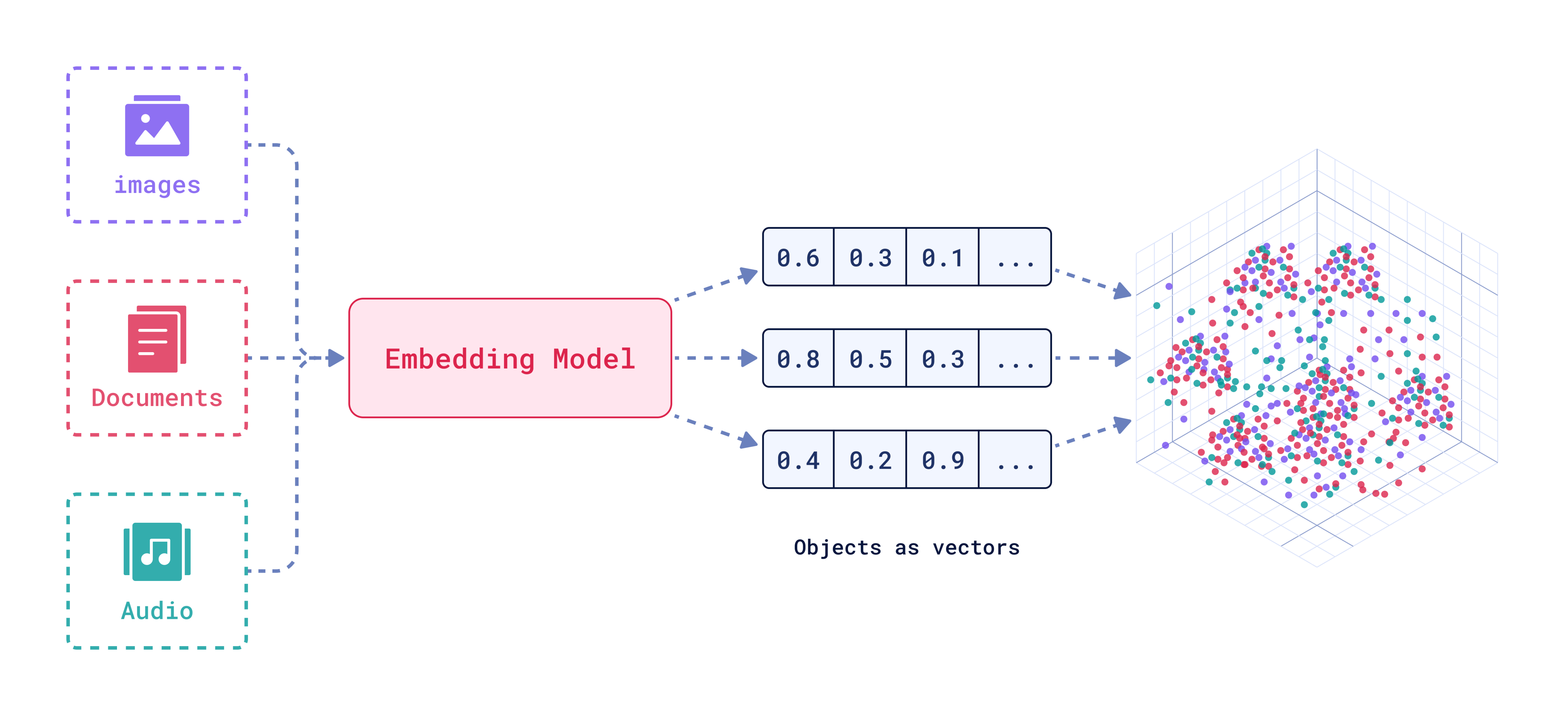Building Efficient Image Similarity Search with VGG16 and FAIS
Rapid Image Retrieval: Building a High-Speed Similarity Search System with VGG16 and FAISS
Imagine the frustration of manually searching through countless photos to find a specific image. This article explores a solution: building a lightning-fast image similarity search system using the power of vector embeddings, the VGG16 model, and the efficient indexing capabilities of FAISS.
Key Learning Outcomes:
- Grasp the concept of vector embeddings and their role in representing complex data numerically.
- Understand how VGG16 generates image embeddings suitable for similarity comparisons.
- Learn the functionality of FAISS for rapid indexing and retrieval of similar vectors.
- Develop practical skills to implement an image similarity search system.
- Explore common challenges and their solutions in high-dimensional similarity searches.
(This article is part of the Data Science Blogathon.)
Table of Contents:
- Understanding Vector Embeddings
- Advantages of Using Vector Embeddings
- Introducing VGG16
- Leveraging FAISS for Indexing
- Code Implementation: Building the Image Similarity Search System
- Step 1: Importing Necessary Libraries
- Step 2: Loading Images from a Directory
- Step 3: Loading and Modifying the VGG16 Model
- Step 4: Generating Image Embeddings with VGG16
- Step 5: Creating the FAISS Index
- Step 6: Loading Images and Computing Embeddings
- Step 7: Searching for Similar Images
- Step 8: Example Usage and Search Implementation
- Step 9: Displaying Search Results
- Step 10: Visualizing Results with
cv2_imshow
- Addressing Common Challenges
- Frequently Asked Questions (FAQ)
Understanding Vector Embeddings
Vector embeddings transform complex data (images, text, audio) into numerical vectors. Similar items cluster together in a high-dimensional space, enabling computers to quickly identify related information.

Advantages of Vector Embeddings
Vector embeddings offer several key advantages:
- Efficiency: Rapid distance calculations between vectors enable fast similarity searches.
- Scalability: Handles large datasets efficiently, making them suitable for big data applications.
- Dimensionality Reduction: High-dimensional data (like images) can be represented in lower dimensions without significant information loss, improving storage and efficiency.
- Semantic Understanding: Captures semantic relationships between data points, improving accuracy in tasks like NLP and image recognition.
- Versatility: Applicable to various data types.
- Resource Savings: Pre-trained embeddings and vector databases reduce the need for extensive training.
- Automated Feature Engineering: Automates feature extraction, eliminating manual feature engineering.
- Adaptability: More adaptable to new inputs than rule-based models.
- Computational Efficiency: Compared to graph-based approaches, embeddings are computationally less intensive.
Introducing VGG16
VGG16, a Convolutional Neural Network (CNN), is used here to generate image embeddings. Its 16 layers with learnable weights excel at object detection and classification.
The process involves resizing the input image to 224x224 pixels, passing it through convolutional layers (using 3x3 filters to extract features like edges and textures), applying activation functions (ReLU for non-linearity), and using pooling layers to reduce the image size while retaining key features. Finally, fully connected layers process the information to generate a final output. For our purpose, we use a layer before the final classification layer to obtain the image embedding.

Leveraging FAISS for Indexing
FAISS (Facebook AI Similarity Search) is a library designed for efficient similarity search and clustering of dense vectors. It excels at handling massive datasets and rapidly finding the nearest neighbors to a query vector.
Similarity Search with FAISS: FAISS builds an index in RAM. Given a new vector, it efficiently computes the Euclidean distance (L2) to find the closest vectors in the index.

Code Implementation: Building the Image Similarity Search System
(Note: The following code snippets are illustrative. Refer to the original article for complete, runnable code.)
Step 1: Importing Libraries
import cv2 import numpy as np import faiss import os from keras.applications.vgg16 import VGG16, preprocess_input from keras.preprocessing import image from keras.models import Model from google.colab.patches import cv2_imshow
(Steps 2-10: Refer to the original article for detailed code and explanations of each step.)
Addressing Common Challenges
- Memory Consumption: High-dimensional embeddings for large datasets require significant memory.
- Computational Cost: Generating embeddings and searching can be computationally expensive.
- Image Variability: Variations in image quality and format can affect embedding accuracy.
- Index Management: Creating and updating large FAISS indices can be time-consuming.
Frequently Asked Questions (FAQ)
(Refer to the original article for a comprehensive FAQ section.)
Conclusion
This article demonstrated the construction of a high-speed image similarity search system using vector embeddings, VGG16, and FAISS. This approach combines the power of deep learning for feature extraction with efficient indexing for rapid similarity searches, enabling efficient image retrieval from large datasets. The challenges associated with high-dimensional data were also discussed, highlighting the importance of efficient algorithms and data structures for effective similarity search.


(Note: Images are included as per the original article's specifications.)
The above is the detailed content of Building Efficient Image Similarity Search with VGG16 and FAIS. For more information, please follow other related articles on the PHP Chinese website!

Hot AI Tools

Undresser.AI Undress
AI-powered app for creating realistic nude photos

AI Clothes Remover
Online AI tool for removing clothes from photos.

Undress AI Tool
Undress images for free

Clothoff.io
AI clothes remover

Video Face Swap
Swap faces in any video effortlessly with our completely free AI face swap tool!

Hot Article

Hot Tools

Notepad++7.3.1
Easy-to-use and free code editor

SublimeText3 Chinese version
Chinese version, very easy to use

Zend Studio 13.0.1
Powerful PHP integrated development environment

Dreamweaver CS6
Visual web development tools

SublimeText3 Mac version
God-level code editing software (SublimeText3)

Hot Topics
 Best AI Art Generators (Free & Paid) for Creative Projects
Apr 02, 2025 pm 06:10 PM
Best AI Art Generators (Free & Paid) for Creative Projects
Apr 02, 2025 pm 06:10 PM
The article reviews top AI art generators, discussing their features, suitability for creative projects, and value. It highlights Midjourney as the best value for professionals and recommends DALL-E 2 for high-quality, customizable art.
 Getting Started With Meta Llama 3.2 - Analytics Vidhya
Apr 11, 2025 pm 12:04 PM
Getting Started With Meta Llama 3.2 - Analytics Vidhya
Apr 11, 2025 pm 12:04 PM
Meta's Llama 3.2: A Leap Forward in Multimodal and Mobile AI Meta recently unveiled Llama 3.2, a significant advancement in AI featuring powerful vision capabilities and lightweight text models optimized for mobile devices. Building on the success o
 Best AI Chatbots Compared (ChatGPT, Gemini, Claude & More)
Apr 02, 2025 pm 06:09 PM
Best AI Chatbots Compared (ChatGPT, Gemini, Claude & More)
Apr 02, 2025 pm 06:09 PM
The article compares top AI chatbots like ChatGPT, Gemini, and Claude, focusing on their unique features, customization options, and performance in natural language processing and reliability.
 Top AI Writing Assistants to Boost Your Content Creation
Apr 02, 2025 pm 06:11 PM
Top AI Writing Assistants to Boost Your Content Creation
Apr 02, 2025 pm 06:11 PM
The article discusses top AI writing assistants like Grammarly, Jasper, Copy.ai, Writesonic, and Rytr, focusing on their unique features for content creation. It argues that Jasper excels in SEO optimization, while AI tools help maintain tone consist
 Selling AI Strategy To Employees: Shopify CEO's Manifesto
Apr 10, 2025 am 11:19 AM
Selling AI Strategy To Employees: Shopify CEO's Manifesto
Apr 10, 2025 am 11:19 AM
Shopify CEO Tobi Lütke's recent memo boldly declares AI proficiency a fundamental expectation for every employee, marking a significant cultural shift within the company. This isn't a fleeting trend; it's a new operational paradigm integrated into p
 AV Bytes: Meta's Llama 3.2, Google's Gemini 1.5, and More
Apr 11, 2025 pm 12:01 PM
AV Bytes: Meta's Llama 3.2, Google's Gemini 1.5, and More
Apr 11, 2025 pm 12:01 PM
This week's AI landscape: A whirlwind of advancements, ethical considerations, and regulatory debates. Major players like OpenAI, Google, Meta, and Microsoft have unleashed a torrent of updates, from groundbreaking new models to crucial shifts in le
 Top 7 Agentic RAG System to Build AI Agents
Mar 31, 2025 pm 04:25 PM
Top 7 Agentic RAG System to Build AI Agents
Mar 31, 2025 pm 04:25 PM
2024 witnessed a shift from simply using LLMs for content generation to understanding their inner workings. This exploration led to the discovery of AI Agents – autonomous systems handling tasks and decisions with minimal human intervention. Buildin
 10 Generative AI Coding Extensions in VS Code You Must Explore
Apr 13, 2025 am 01:14 AM
10 Generative AI Coding Extensions in VS Code You Must Explore
Apr 13, 2025 am 01:14 AM
Hey there, Coding ninja! What coding-related tasks do you have planned for the day? Before you dive further into this blog, I want you to think about all your coding-related woes—better list those down. Done? – Let’






